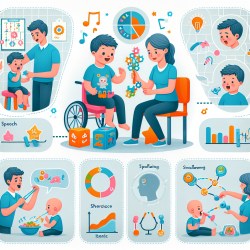Understanding ACEs and Delinquency: Insights for Practitioners
Adverse Childhood Experiences (ACEs) have long been associated with various negative outcomes, including adolescent delinquency. A recent study titled "Adverse Childhood Experiences and Adolescent Delinquency: A Theoretically Informed Investigation of Mediators during Middle Childhood" provides valuable insights into how early ACEs impact adolescent behavior and highlights the importance of early intervention. This blog will explore the study's findings and discuss practical applications for practitioners working with children.
The Impact of ACEs on Adolescent Delinquency
The study examined the relationship between ACEs at ages 5 and 7 and delinquency at age 14 among youth in the UK. The results revealed a significant association between early ACEs and increased rates of adolescent delinquency. Notably, the effects of ACEs were found to be cumulative, meaning that the more ACEs a child experienced, the higher their likelihood of engaging in delinquent behavior.
The study identified five key mediators that explain the relationship between early ACEs and adolescent delinquency: child property delinquency, substance use, low self-control, unstructured socializing, and parent-child attachment. Among these, early delinquency and low self-control emerged as the most robust mediators.
Implications for Practitioners
For practitioners, these findings underscore the importance of early screening for ACEs and the implementation of trauma-informed care (TIC) approaches. By identifying children at risk early, practitioners can intervene to prevent the development of delinquent behaviors.
- Early Screening: Implement routine screening for ACEs in schools and community settings to identify at-risk children early.
- Trauma-Informed Care: Adopt TIC approaches that focus on understanding the impact of trauma and providing supportive environments for children.
- Building Self-Control: Develop programs that enhance self-control in children, as this has been shown to mediate the relationship between ACEs and delinquency.
- Parental Engagement: Strengthen parent-child relationships through programs that encourage positive bonding and communication.
Encouraging Further Research
While the study provides valuable insights, it also highlights the need for further research. Practitioners are encouraged to explore additional mediating factors and interventions that can mitigate the impact of ACEs on delinquency. Collaborative research efforts between practitioners and researchers can lead to more effective strategies for preventing delinquency.
To read the original research paper, please follow this link: Adverse Childhood Experiences and Adolescent Delinquency: A Theoretically Informed Investigation of Mediators during Middle Childhood.










